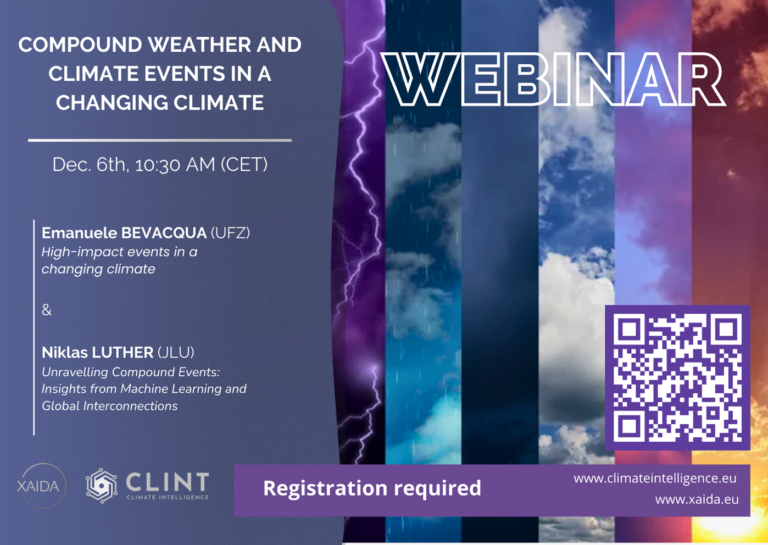XAIDA WEBINAR | HOW EXTREME WAS THE GLOBAL HEAT IN 2023/24?
XAIDA is now hosting an open monthly webinar. Within the XAIDA project, sixteen research institutes and climate risk practitioners, aim to develop and apply novel artificial intelligence methods to better assess and predict the influence of climate change on extreme weather. Join the webinar each month to dive into interesting topics such as machine learning for climate extremes, the societal impact of extremes, and education about climate change.
Coordination: Maria Gonzalez-Calabuig (University of València), Manon Rousselle (IPSL)

January 21st, 2025 at 2 PM (14:00) CET
Speaker: Svenja Seeber, PhD candidate at the Department of Environmental Systems Science, ETH Zurich
Title: How extreme was the global heat in 2023/24?
Abstract: Between July 2023 and June 2024, each month set a new temperature record, all exceeding the 1.5 °C threshold established by the Paris Agreement. The global mean surface temperature anomaly peaked in September 2023 at 1.8 °C above pre-industrial levels, exceeding the previous record by an unprecedented 0.5 °C.
Using a probabilistic attribution framework, we assess the likelihood of this global heat. We show that September 2023 was the most extreme month in this record-breaking period, with temperature anomalies that were extremely unlikely based on both observed and modelled data. Although El Niño conditions contributed to the development of the heat, the most extreme anomalies were observed in the extratropics, particularly over land.
CMIP6 climate models fail to capture the September 2023 anomaly under the current climate, but its occurrence probability rises sharply within a few years into the future. In contrast, the temperature jump from September 2022 to 2023 was an extreme anomaly that would strongly challenge our understanding of the climate system if it were to reoccur, even at higher warming levels. A process-based analysis highlights water vapour feedback and resulting longwave forcing as a key driver of the heat buildup, with no indication of missing processes or nonlinearities in the climate models.
Registration: xaidaproject@gmail.com






